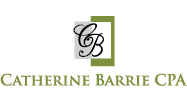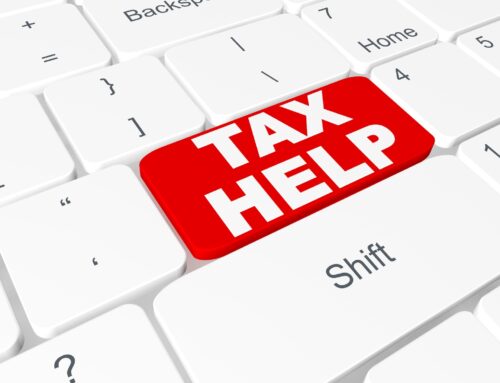For many businesses, having an accountant prepare their income tax returns is the most sensible option. We don’t all have time to become income tax experts — and mistakes can be costly. So why not hire an expert to get the job done right and cut down on your anxiety?
To do the job right, though, your accountant or income tax preparer will need to have all the right tax records well ahead of time – preferably organized. You want to maximize your tax deductions and get your return filed before the deadline to avoid penalties. Most individuals and businesses need to have their taxes filed in Canada by April 30. If you are self-employed, you do have until June 15 to file without penalty. But any taxes owed will still be due by April 30.
Here’s how to prepare your tax records for Catherine Barrie Accounting office.
Common Business Records Your Tax Accountant Needs
Financial statements for the business including profit-loss statements, income statements, balance sheets, and cash flow statements
- Payroll information (if you have employees)
- Business expenses (travel expenses, advertising expenses, rent, utilities, office supplies, maintenance, telecommunications, internet costs, raw materials, and shipping)
- Motor vehicle expense information. This refers to any business use of auto, operating expenses, vehicle driving log with business kilometers driven, etc.
- Asset additions or disposals during the year such as land, buildings, vehicles, machinery, etc.
- Business use-of-home details — if your home is your principal place of business, or you use the workspace in your home to earn your business income and use it regularly to meet with clients, customers, or patients.
Catherine Barrie Accounting will also need any tax records such as:
Last year’s Notice of Assessment and/or last year’s tax return. This provides your accountant with a snapshot of your profit or loss from the previous year and tells them what deductions you have or haven’t already taken.
- Any taxes you’ve paid by instalments in the previous year.
Other records your tax accountant may need will depend on whether your business is a sole proprietorship or partnership — in which case you will file a T1 (personal) income tax return — or an incorporated company — in which case you will ask them to prepare a T2 (corporate). For a T1 return, your tax accountant will also need all relevant personal information slips and tax-related documents as well as the business ones. Here are some of the most common:
- T4 slips (if you have employment as well as business income)
- T4A commissions & self-employed
- T5013 Partnership Income
- T3 Income from Trusts
- T5 Investment Income
- RRSP contribution slips
- Charitable donations
- Medical and dental receipts
- Childcare information
How to Save Money on Accountant’s Fees.
Accountants get paid by the hour, so the harder you make their job, the more it will cost you. Fees vary based on the size of your business and how much depth your accountant or preparer may have to go through to complete your return. These fees can range from a few hundred dollars to thousands.
Here are some tips to cut down on your accounting bill
- Gather all your receipts and information and have them ready when you meet your accountant. At tax time, accountants are busy and are normally working on several tax files at once. Having all the information to complete your return in one session cuts down on their time.
- Be as organized as you possibly can. For example, clip groups of receipts together by type and put a post-it-note stating what the category is on top. The less your accountant has to figure out, the less time they’ll be spending on your file. Handing your accountant a big box or folder of unsorted receipts, expenses, etc. will greatly increase your accounting fees.
- Summarize and tally records wherever possible and double-check your results. Cheques, invoices, business expenses — all should be categorized and totaled. Sort all your information slips by type. Having your tax accountant do the organizing and tallying is the expensive way to go.
- If you have several businesses, remember you will need separate revenue and expense figures for each business, as business income has to be listed by individual business on the T1 form.
- Talk to your accountant about how you can better organize your information to make their job easier.
- Use your accountant for tax advice. Catherine Barrie accounting can provide tax planning advice such as how to maximize your credits or deductions or ways of restructuring your business finances to reduce your tax exposure.
And remember, having a tax professional prepare your income tax return(s) isn’t costing you as much as you think when you see the bill. It’s a legitimate business expense.
Accounting Software Can Save on Accounting Fees
Accounting software designed for small businesses can simplify many aspects of running a business, as well as saving on accounting fees. With today’s cloud-based accounting packages, you can have all of your accounting information in one place and give your accountant direct online access to it at tax time. As well as keeping track of expenses and revenue, accounting software can do payroll, time and billing, and generate income statements, cash flow statements, and balance sheets as required.
Myths About Business Tax Filings
Many people believe they don’t need to file a return if they made less than $5,000 or if their business didn’t make a profit. Both cases are false. You still need to file regardless of the amount you made, even if it was a loss. In this case, you can use that amount to offset any other income. And if you made money, but less than $5,000, you may still be on the hook for Canada Pension Plan (CPP) contributions — the share you and your employees owe (you pay for both) are calculated on your tax return.
If you have this year, or even back taxes to file. Please give us a call to discuss today.






